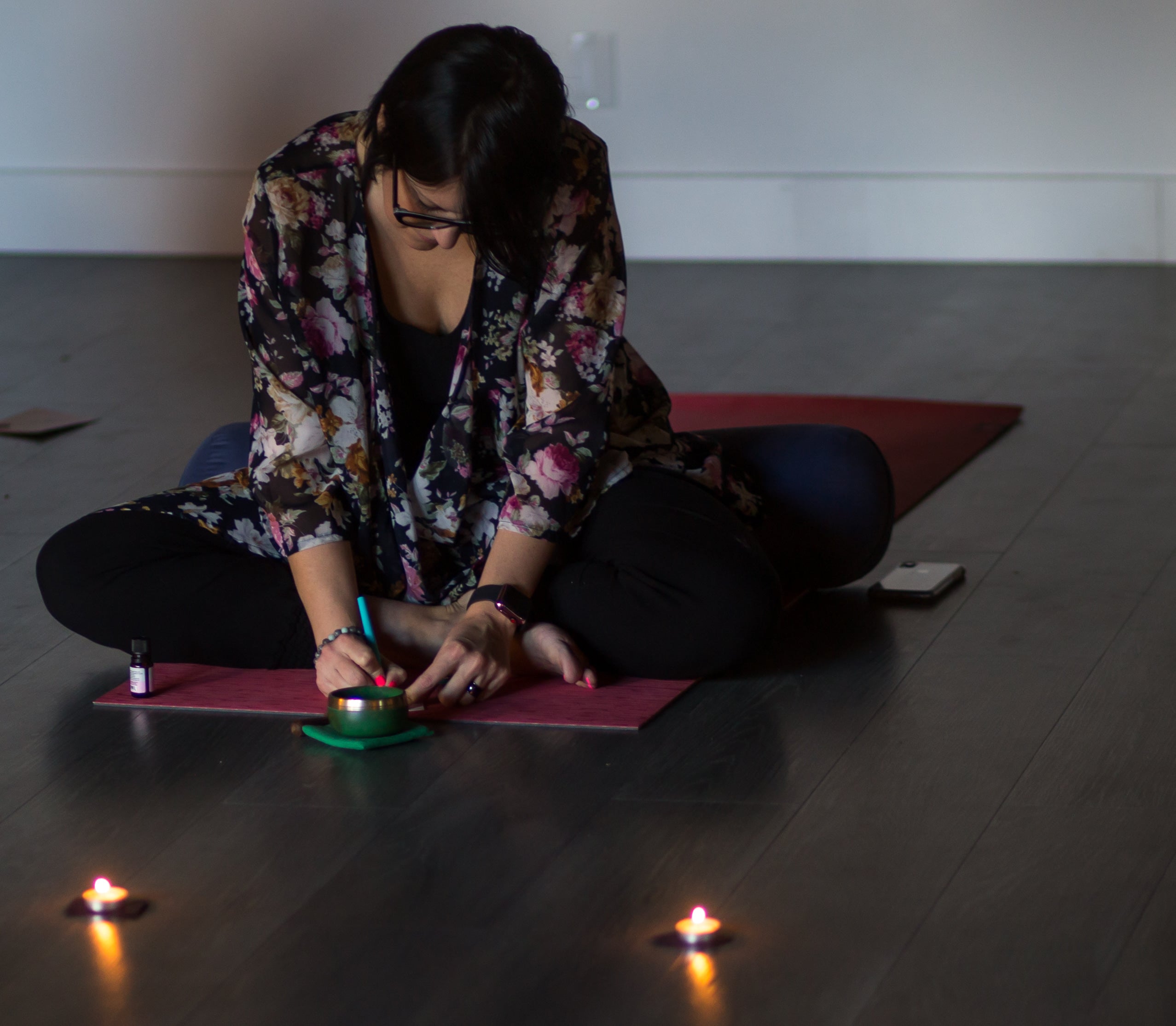ORDER IN TIME FOR MOTHER’S DAY – Learn More
ORDER IN TIME FOR MOTHER’S DAY – Learn More
ORDER IN TIME FOR MOTHER’S DAY – Learn More
ORDER IN TIME FOR MOTHER’S DAY – Learn More

May 27, 2020 6 min read
In these — uncertain, unprecedented, what are we even calling them now? — times, life can feel overwhelming, and all that stress can take a toll on your mental health. We sat down with local registered psychologist, Dr. Melissa Jay, who is the director of Canmore Counseling and the Trauma Informed Yoga Psychology School, to talk about how you can care for your mental health from home and the importance of checking in. Melissa is also an unabashed fan of our peaceful Serenity scent, made from calming Lavender and Cedarwood, and the essential oil has been known to make an appearance in her yoga classes.
See the entire Serenity collection
Remember, everyone can benefit from professional counselling, no matter where you're at in your journey. There’s no shame in talking to someone. Especially if you’re really struggling, please seek the help of a professional and take care of yourself.
We’ve been hearing that the next pandemic is going to be one of mental health. Why is that?
We’re living in a state of crisis right now. Mental health and wellness kind of go on the back burner. So, right now, I'm finding that a lot of people need to be attentive to their basic needs, like trying to secure food, shelter and safety. That's especially true for those who have lost their jobs or have been laid off, or who have had a drastic reduction in their income. Many Canadians are doing their best to just pay their bills and get by, all while trying to stay healthy and do their part. It just creates this kind of stuckness in a state of crisis and chronic stress. It becomes difficult, or almost impossible, to attend to our overall wellness — which includes our mental health. What I'm seeing is, the more we're able to support one another in meeting our basic needs and having those basic needs addressed, it then empowers people to become more aware of the impact that the chronic stress and state of crisis has taken on their whole selves: mind, body and spirit.
How do you encourage people or remind them to keep that in the front burner instead of the back burner?
That is a practice, and when people are connected to their support systems they're better able to do that. What I'm noticing is when we are stuck in a state of crisis or chronic stress, it becomes very difficult to see outside of ourselves. We really do need to keep the people that care for us and help us close when it would be really easy to push those people away. It's going to be those people who really allow us to express ourselves and who can also remind us when we need to be taking care of ourselves in different ways.
When you talk about the sort of chronic stress and stuckness, how do you see that impacting people in their day to day life? What are the effects of that?
People are unable to attend to their mental health. Right now, more than ever, people are feeling really disconnected from one another, and this disconnection is what contributes to feelings like loneliness, grief, sadness, and anxiety. When we're using language, like "self-isolation" and "social distancing," it almost implies that it's not okay to interact and stay connected to others. So when we see each other out in the world, we tend to have kind of a fight or flight response in our bodies based on an innate desire to keep ourselves, and the ones that we care about, safe. This perpetual experience leaves us feeling even more anxious, worried or disconnected.
Oh my gosh, so true. I felt that. I thought it was just that I'm not used to interacting with people face to face as much. But it really is this like an anxiety that builds, like when I run into someone at the grocery store, and you get filled with this sort of insecurity about whether you're practicing social distancing well enough.
Well said, because we start to question ourselves like, “Oh no, how am I being perceived?” So there's all this stuff going on internally that doesn't actually enable us to connect in those moments where maybe there was an opportunity for connection.
What is it about connection that's so important for our mental health?
I'm a bit of a nerd when it comes to attachment theory. We are wired for connection. Attachment often gets kind of a bad rap because it's usually inferred that it's only associated with mom and baby when baby is first born, but really, attachment theory talks about the idea that we need connection. We need the people that we’re close to, who nurture us, to empower us to be independent and go out there and live our best lives. We need those people lifelong. When we don't have that connection, it makes it more difficult to thrive, because there's no one mirroring back for us: “Is this okay? How am I doing? Am I dealing with this?” We really need the mirror neurons. This is super nerdy, but, by having interaction with someone else, we’re able to have our experience mirrored back to us which allows us to feel seen and supported.

Photo: Suzanne Mills Hampson
We hear a lot about slowing down right now. What is the importance of slowing down?
Protip: This kind of deep breathing actually taps into the vagus nerve and activates your parasympathetic nervous system, which helps turn off your stress reaction.
That could be in your head or out loud, whatever works for you.
How are you taking care of your mental health right now?
Comments will be approved before showing up.